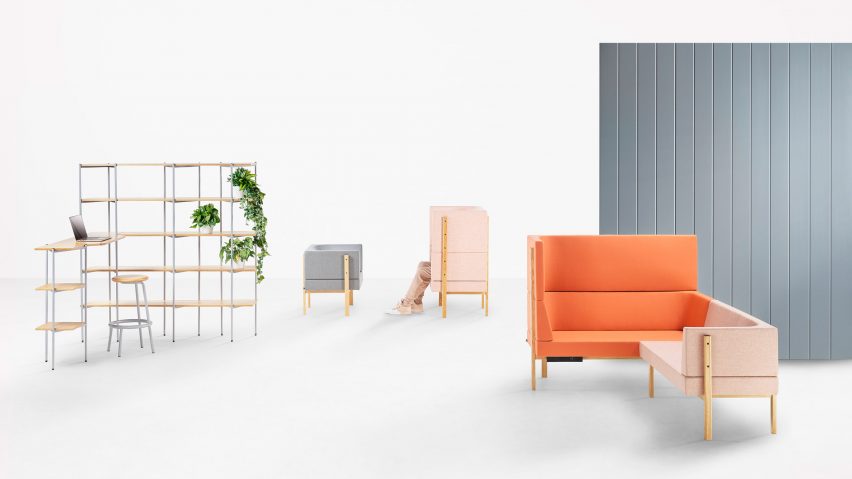
New furniture brand Les Basic by Alexander Lotersztain wants to help millennials slow down
A modular sofa called Homework, a recycled wombat, and a bedside table that doubles as a drinks trolley feature in Alexander Lotersztain's new furniture brand targeting the millennial generation.

Called Les Basic, the brand will launch at New York's International Contemporary Furniture Fair in May with a debut collection of seating, tables, outdoor furniture, lighting and accessories.
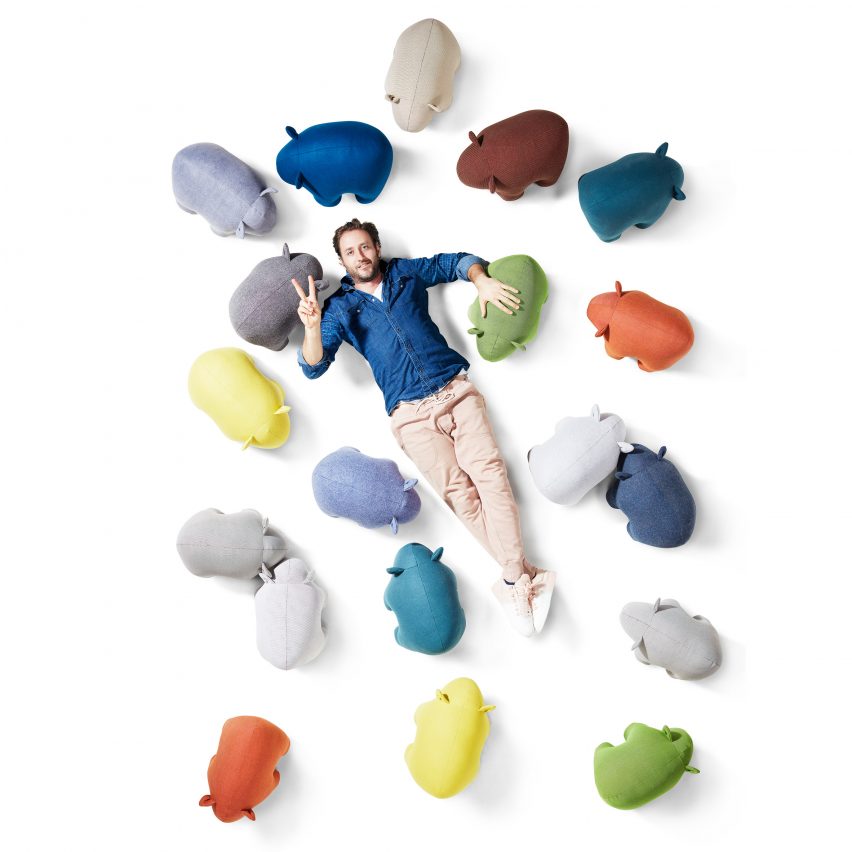
Lotersztain, who also runs lighting and furniture brand Derlot Editions, created the brand in response to data showing the demographic born between 1980 and 2000 are living substantially differently to generations before.
This included research by Goldman Sachs describing millennials as "social, connected and intensely mobile" people who, although adept with fast-paced technology, have been much slower to get married and have children.
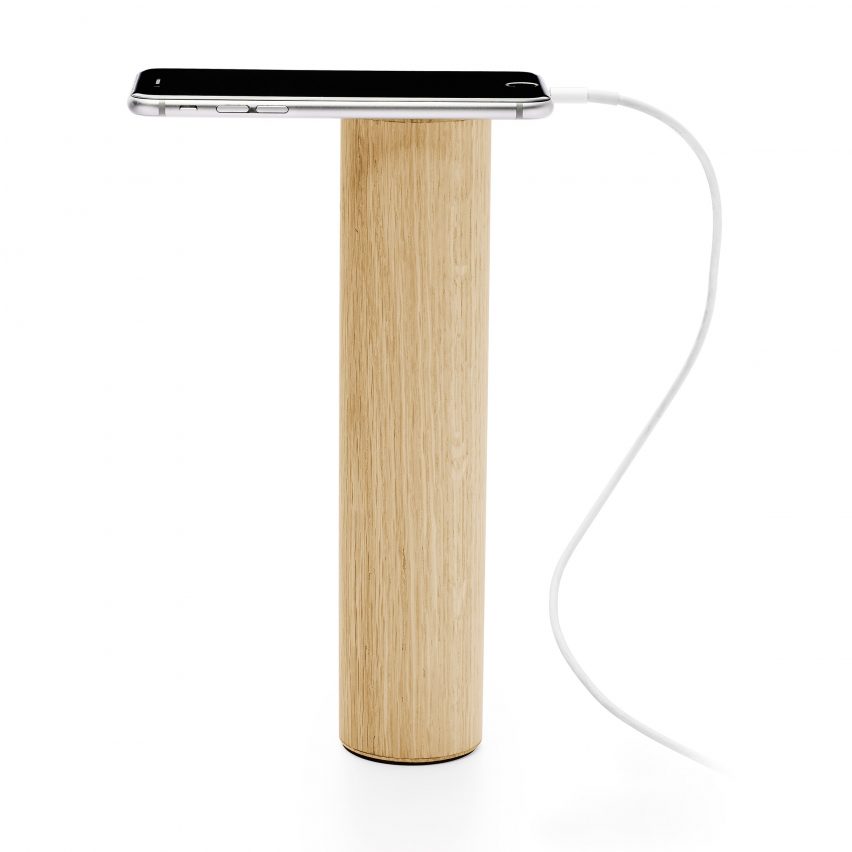
To suit their lifestyles and values, Lotersztain gave Les Basic an aesthetic he describes as "anti-loud". He created simple pieces that can evolve over a long use cycle, but added in "details that have the potential to surprise and or create some sort of comfortable wonder".
"These values are very closely related to millennial values of responsibility and balance between our tech world and something that still connect us emotionally," said Lotersztain. "The products are adaptable, modular and to a degree 'hackable'. They are products that allow you to be connected but not feel dependant."
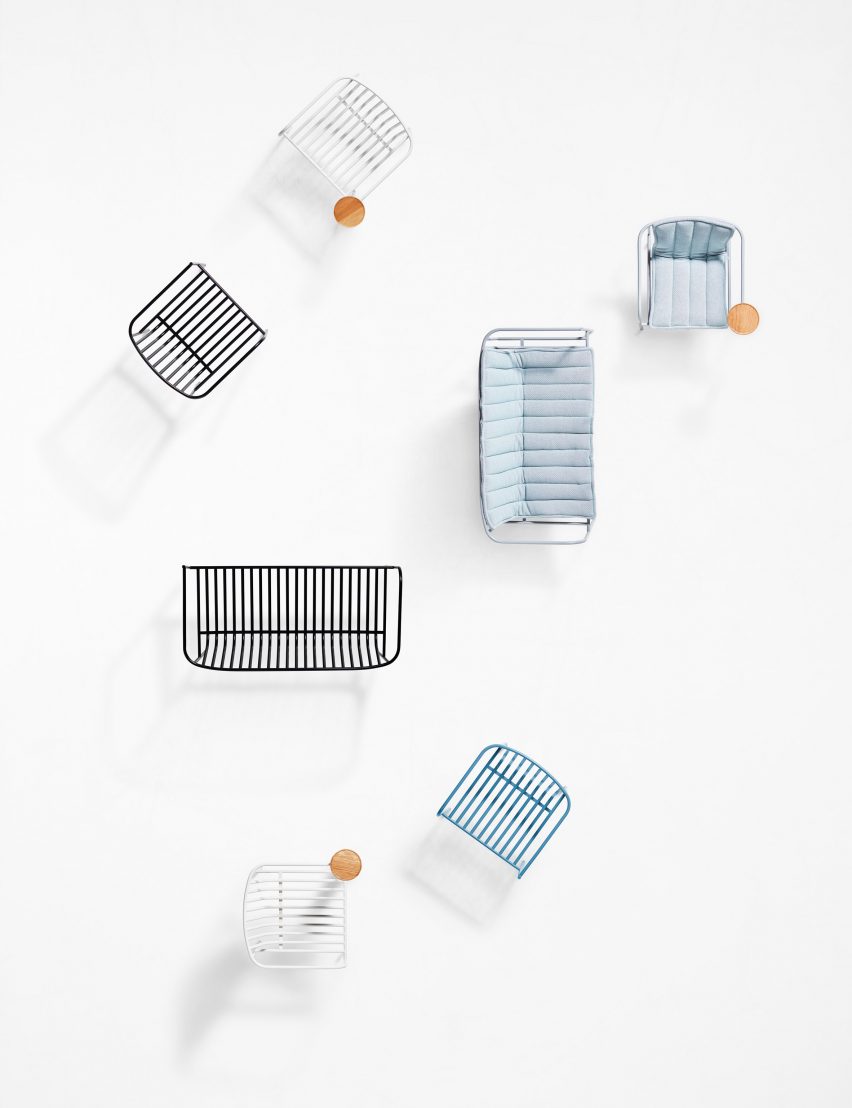
For instance, the Whitsunday outdoor seating features a leg detail that becomes a bag hook or base for a side table. The Troika shelving system is made up of stacking modular parts that can be easily added or taken away to suit the environment.
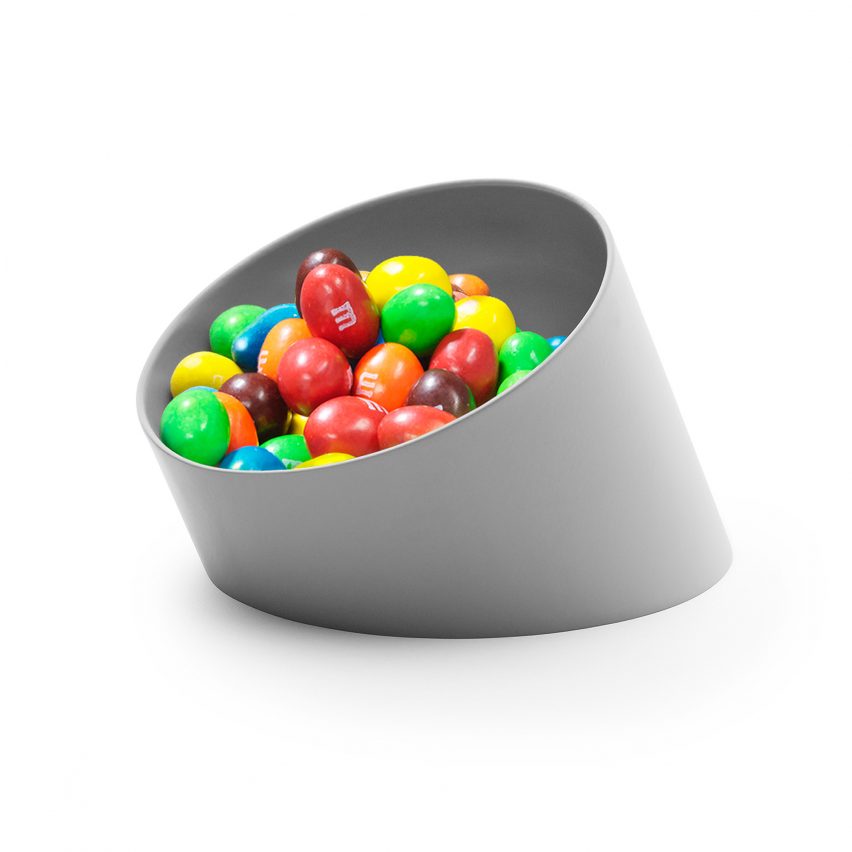
A slimline modular sofa system called Homework features built-in power outlets and wooden surfaces that function as side tables or desks, while the Valet functions as a bedside table, drinks trolley, display, mobile office or individual dining setting.
A wombat is also part of the collection. The minimal stuffed toy is a way of realising the company's sustainability focus – it is made of textile offcuts from Les Basic's upholstered products, and a percentage of every sale goes to the RSPCA in Australia.
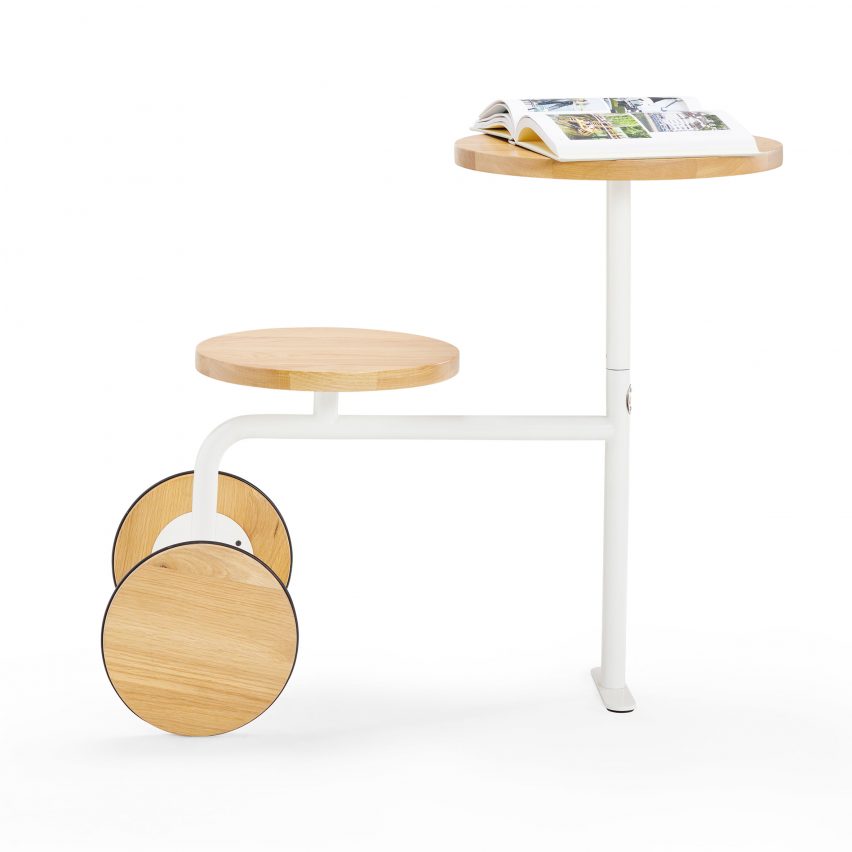
Noting the blurring of boundaries between personal and work life, and an increased interest in wellness, Lotersztain says the collection is about balancing technology and practicality with emotional wellbeing.
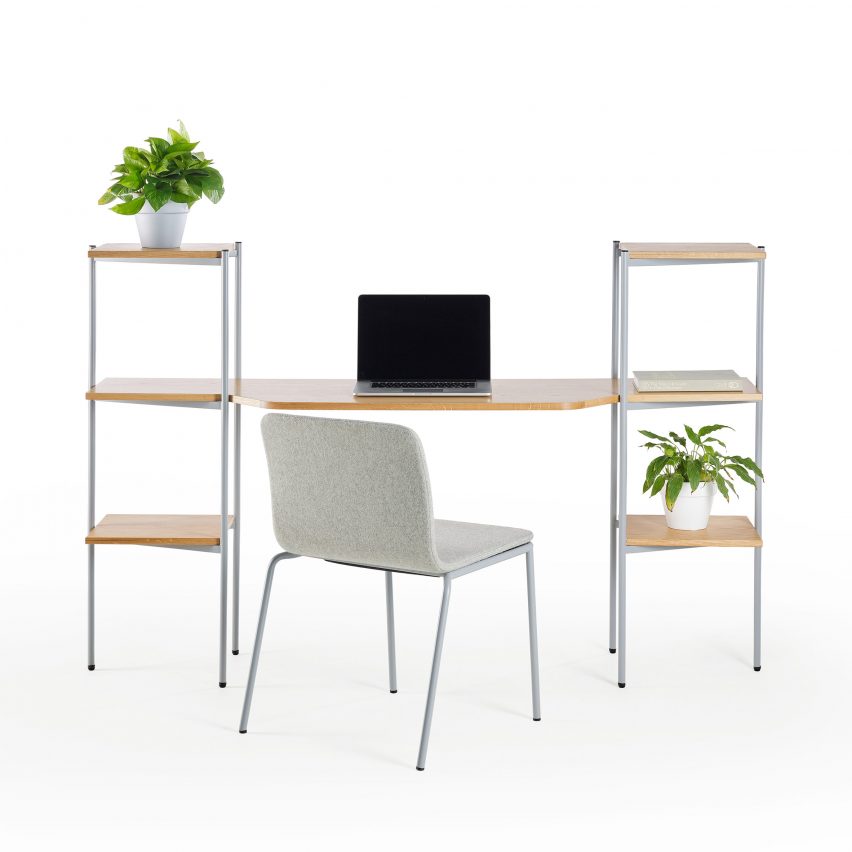
"Les Basic is about 'slow living'," he says. "A way of counteracting our digital fast-paced addiction. It's about quality, connection to natural, noble materials, and authenticity. It's about paring back to find something we value, something meaningful."
In the long term, Lotersztain wants to develop Les Basic into a broader lifestyle brand that will "grow with its audience", suggesting its product range may evolve to suit the generation as it ages.
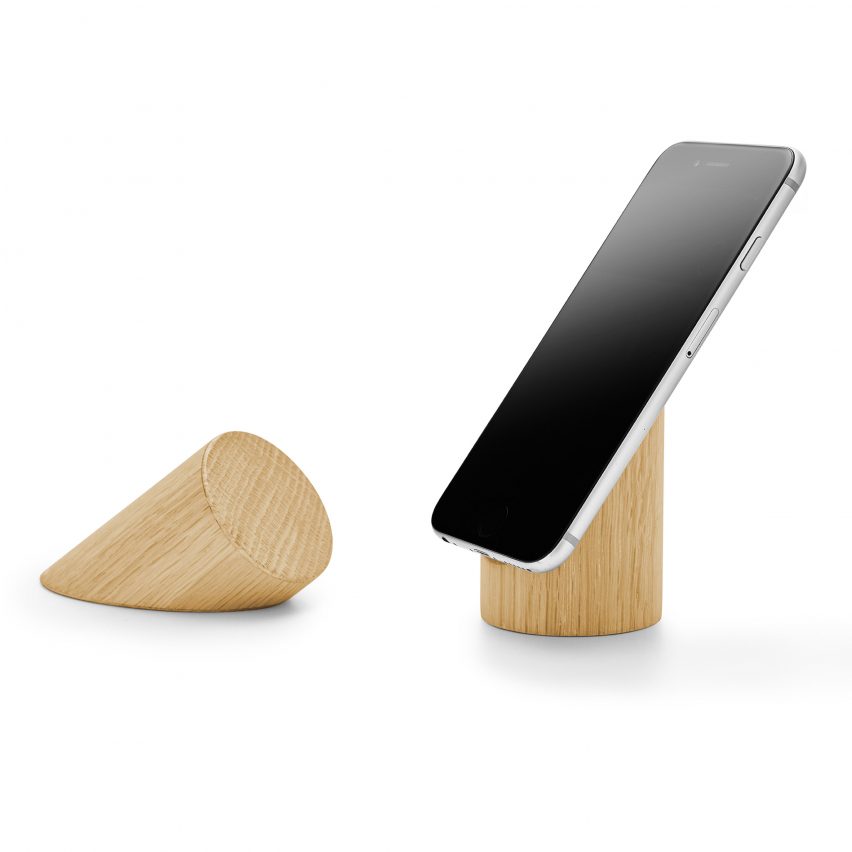
Lotersztain is not alone among designers in targeting the millennial demographic with modular and sustainable design.
Hannabi's Urban Nomad is designed to act as a full-height sofa, two seating mats or a single bed, while at Milan design week IKEA and Tom Dixon are launching the modular Delaktig, aimed at adaptability and future-proofing.